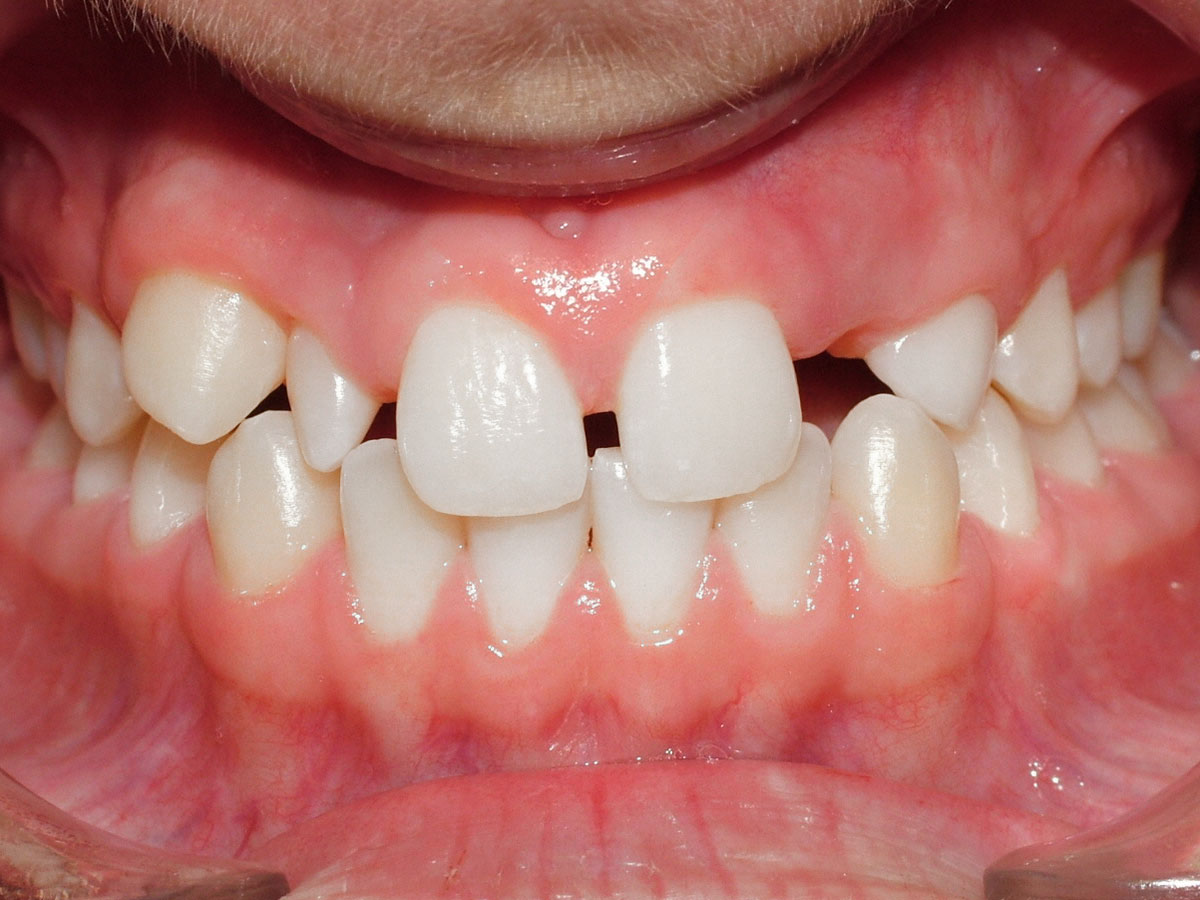Teeth may be missing for a number of reasons – in some cases individual teeth simply do not develop from birth, or injury causing loss of a tooth or tooth decay / removal.
Although having teeth missing does not necessarily require dental or orthodontic treatment, it can be highly recommended for a couple of reasons.
- Teeth may appear to be 'fixed in place' in the mouth, but this is not really the case. When a tooth falls out or is removed, the other teeth in the mouth, particularly those on either side or above where the missing tooth was, tend to 'encroach' or drift into the new space. Teeth generally tend to move towards the front of the mouth and towards the opposing set of teeth (i.e. upper teeth move towards lower teeth and vice-versa). This process is known as over eruption.
- When a gap appears in the jaw where a tooth used to be, another process called 'resorption' occurs, which is bone loss in the jawbone. This bone loss can lead to shrinking of the gums and can go on to impact the entire shape of the face in severe cases.
Both drift and resorption can make remaining teeth more prone to decay and the gums more likely to develop periodontal disease, as well as affecting the bite of the teeth, which affects chewing and eating. Missing teeth also affect the overall appearance of your smile and your facial appearance.

